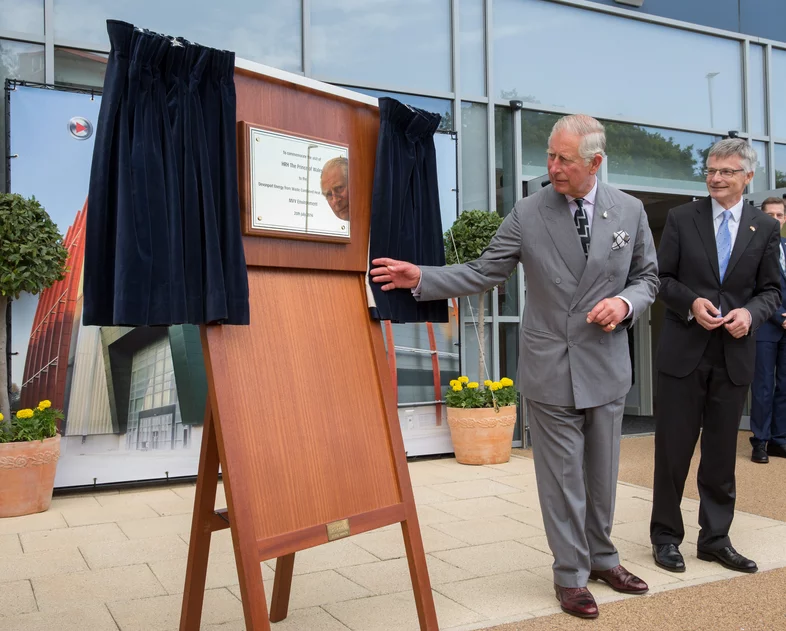The Prince of Wales visits MVV's Devonport Energy from Waste Combined Heat and Power Plant
His Royal Highness, The Prince of Wales, has today visited the Devonport Energy from Waste Combined Heat and Power Plant at North Yard, Devonport. On a tour of the facility His Royal Highness learned about the way in which MVV Environment and the South West Devon Waste Partnership have developed innovative and environmentally-friendly solutions to use residual waste to create useful energy in the form of heat and electricity. He was accompanied by Dr. Georg Müller, Chief Executive Officer of German company MVV Energie AG.
His Royal Highness then joined a private roundtable discussion convened by the Cambridge Institute for Sustainability Leadership (CISL). The CISL had invited members of their Corporate Leaders Group to learn from the work done in Devonport, and explore ways in which waste can be transformed into energy in other places across the country.
To commemorate his visit, His Royal Highness unveiled a plaque. He also used the opportunity to meet members of the local community.
Note to Editors:
MVV Environment Devonport Limited is an English registered company with its registered office in Plymouth. It is a subsidiary company of MVV Umwelt. Both companies are members of German utility company MVV Energie, whose headquarters are in Mannheim. MVV Umwelt provides flexible solutions for waste disposal, producing environmentally sustainable energy. In Germany, MVV Umwelt operates five Energy from Waste and biomass facilities, managing 1.9 million tonnes of waste a year. With over 50 years’ experience, MVV Umwelt is in the top three companies in Germany in its field.
The facility at Devonport makes use of around 245,000 tonnes per year of household, commercial and industrial residual waste. The waste originates from the communities of the South West Devon Waste Partnership, a partnership between Plymouth City Council, Torbay Council and Devon County Council. The Facility generates around 190,000 megawatt hours of electricity and around 60,000 megawatt hours of steam for heating purposes per year. The energy is delivered to the neighbouring dockyard and Her Majesty’s Naval Base Devonport. It replaces the natural gas-based heating energy generation there and thus cuts CO2 emissions by around 73,000 tonnes a year.


